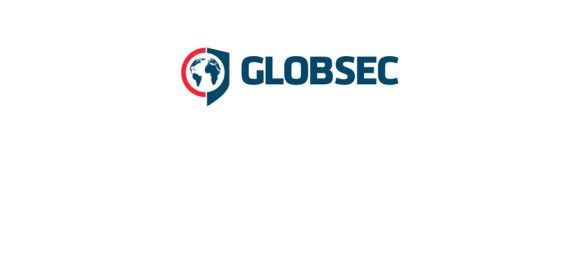Section: The Central European Policy Institute (Slovakia)
Security in Europe from a Visegrad viewpoint
By Public Relations. On December 9th, GPI Research Fellow Tomáš A. Nagy represented our GLOBSEC Policy Institute at Think Visegrad roundtable entitled Security in Europe from a Visegrad viewpoint organised by Centre for European Policy Studies (CEPS) and EUROPEUM Institute in Brussels. The roundtable was devoted to the future of Visegrad...
V4+ Security Roundtable in Kiev
By Public Relations.On December 7th, Reseach Fellows, Tomáš A. Nagy and Katarína Klingová represented our GLOBSEC Policy Institute at the V4+ Security roundtable series in Kiev, Ukraine. The roundtable was devoted to two asymmetrically cover topics – i.e. cooperation within the sphere of defence training and education (minor attention) and...
Information war monitor for Central Europe: November 2016 US Elections
By Lóránt Győri, Patrik Szicherle, Veronika Víchová, Daniel Milo, Katarína Klingová. Photo: Flickr|Darron Birgenheier, licensed by CC BY-SA 2.0.GLOBSEC Policy Institute’s bi-weekly overview of conventional and social media discourse in the Czech Republic, Hungary and Slovakia monitors propaganda and disinformation attempts, as well as...
V4 Defence Cooperation: A history of great ambitions paired with limited achievements
By Tomáš A. Nagy. Photo: Flickr|Defence Images, licensed by CC BY-NC-ND 2.0.If a serious financial crisis, an imperialist Russia and a migration crisis cannot motivate the member states of the Visegrad Four group to cooperate on defence, what can?Europe is going through one of the most testing periods in its recent history, and defence policy...
Slovakia, the Visegrad Group and Brexit: Charity Should Begin at Home
By Public Relations. PhotolRUSI website.Dr Jonathan Eyal the International Director of the Royal United Services Institute wrote a commentary with extensive quotes from GLOBSEC Trends public opinion polls titled- Slovakia, the Visegrad Group and Brexit: Charity Should Begin at Home. The commentary analyzes the stance of the political presentative...
Flexible solidarity on migration – what can we expect from Visegrad?
By Milan Nič and Alena Kudzko. Photo: FrontexWith the number of migrants and refugees knocking on Europe’s door relatively contained, there is now a sense of relief at the EU political level. This fact was demonstrated at the recent European Council of 20-21 October 2016, which was dominated by other relevant issues, including the trade...
Information war monitor for Central Europe: October 2016 Part 1
By Lóránt Győri, Patrik Szicherle, Jakub Janda, Veronika Víchová, Daniel Milo, Katarína Klingová. Photo: Flickr|Barney Moss, licensed by CC BY 2.0GLOBSEC Policy Institute’s bi-weekly overview of conventional and social media discourse in the Czech Republic, Hungary and Slovakia monitors propaganda and disinformation attempts, as well as...
Uncanny under-performer: fixing V4 innovation gap
By Maciej Kuziemski. Photo: International Visegrad Fund.Central and Eastern Europe (CEE) has experienced unparalleled GDP growth in recent decades, nearly doubling the growth of the Eurozone in 2015, mainly through multinational companies’ investments and generous EU structural funds, yet has only slightly climbed the global value chain...
Opening Schengen door to Ukraine
By Marta Králiková. Photo: idos.gr.High hopes and stakes for the visa liberalisationUkrainians might be soon traveling to Schengen zone without visa obligation. The long-awaited decision has been postponed due to internal developments in both the EU and Ukraine. On the one hand, the EU’s decision is now conditioned by development of the...
The Czech Republic: Migration trends and political dynamics
By Magda Faltová. Photo: Flickr| European Parliament. Licensed by CC BY-NC-ND 2.0The following report outlines migration trends and the political dynamics on this issue in Czech Republic, particularly in light of the outbreak of the migration crisis in the summer of 2015. This article is part of the Visegrad Migration Series. The migration crisis...



